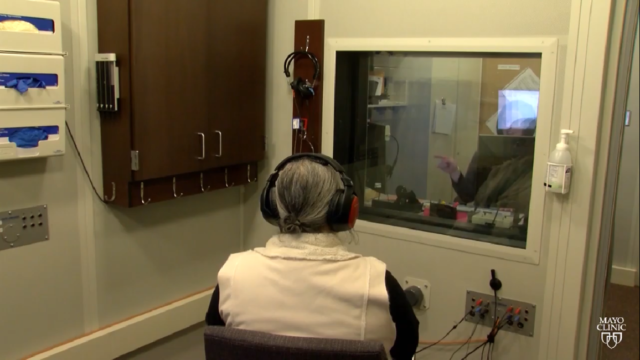
How many times did your parents tell you to turn down the loud music because you’re going to lose your hearing? They had a point. Age-related hearing loss affects 25 percent of adults in the U.S. ages 55 to 64. And more than 350 million people worldwide are expected to have disabling hearing loss by 2030, according to the World Health Organization. While hearing loss can’t be cured, there are ways to prevent it — and to treat it. Dr. Gayla Poling, director of Diagnostic Audiology at Mayo Clinic, explains.
Are you increasing the volume on the TV or asking others to speak up? You’re not alone, especially if you’re over age 50.
“Age-related hearing loss is called ‘presbycusis,'” says Dr. Poling.
The older you get, the more wear and tear you have on your ears.
“That’s when we start noticing age-related hearing loss,” says Dr. Poling.
She says most hearing loss is preventable.
“Enjoying everyday life is really important, but you do want to watch how loud sounds are for how long.”
Hunters, for instance, are at risk of hearing loss.
“If you can wear hearing protection, especially designed hearing protection typically for hunting, where you can reduce the loud noise exposure but still hear the environment around you, that can really prevent long-term damage.”
Dr. Poling says a hearing test can help evaluate whether you’ve experienced hearing loss.
“We’re looking at the threshold at which you can hear sounds the softest, and you’re usually pressing a button or raising your hands, or somehow responding to when you hear those sounds. And we’re evaluating the entire auditory system in that process — not just with the earphones. But we do some other tests to evaluate your middle ear and the inner ear, as well.”
So before you have to turn up the sound, consider turning it down.
‘Courtesy: Mayo Clinic News Network.’[/vc_message]












